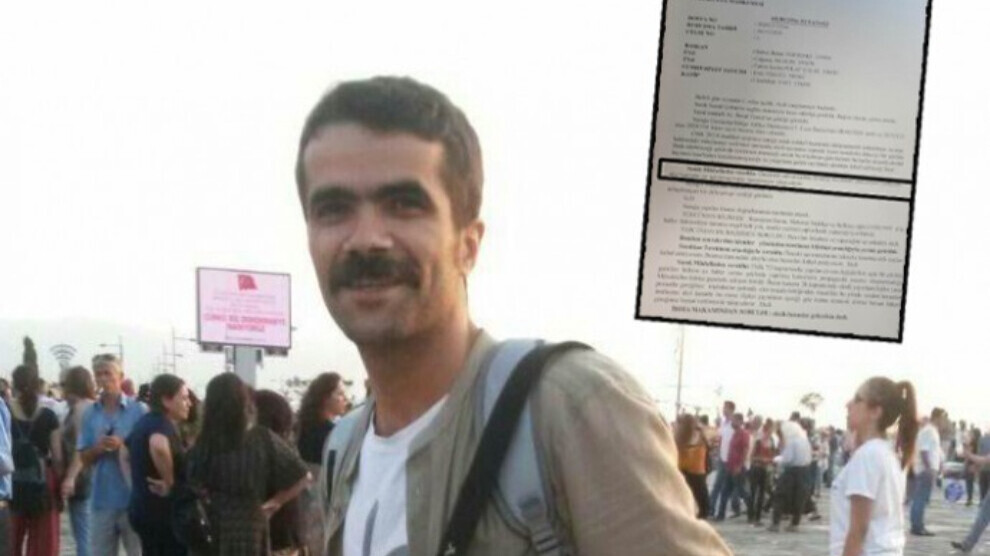Turkish court deems Kurdish an "unknown language”
Kurdish speech of former Editor-in-Chief of Azadiya Welat Newspaper, İsmail Çoban was deemed "an unknown language" at the court hearing.
Kurdish speech of former Editor-in-Chief of Azadiya Welat Newspaper, İsmail Çoban was deemed "an unknown language" at the court hearing.

The trial against the former Editor-in-Chief of Azadiya Welat newspaper, which was closed with a Statutory Decree (KHK in Turkish), regarding the news articles in 9 issues of the newspaper published on different dates was held at Diyarbakır 7th High Criminal Court. The first hearing of the case was held today, after the 5-year prison sentence on the grounds of "chain organizational propaganda" was reversed by the Court of Appeal.
While Çoban attended the hearing through the Audio and Video Information System (SEGBİS) from Tarsus No 3 T-Type Prison, where he is imprisoned for another accusation, Çoban's lawyer Resul Tamur was also present.
AN UNKNOWN LANGUAGE
While lawyer Tamur requested an interpreter for his client, Çoban responded to Turkish questions in Kurdish, and the court president said, "It is observed that the questions asked by the court president in Turkish were answered in a language that was not understood by the court president."
Çoban, who made his defense in Kurdish through the translator assigned by the court committee, stated that he did not accept the accusation. The request of Çoban to be brought to the hearing was rejected by the court.
Lawyer Resul Temur made a defense maintaining that his client is someone who works for a Kurdish newspaper and that the latest amendment within the Anti-Terror Law 7/2 rules that news made for the purpose of informing public do not constitute a propaganda crime. Tamur requested that his client be acquitted.
The court board decided that an investigation file for 2019 be requested from the Tarsus Chief Public Prosecutor's Office and that the translator's charge would be paid by Çoban, and postponed the hearing to 16 February 2021.
At the hearings of the KCK main case in Amed, the defense of Kurdish politicians in Kurdish was recorded by the court presidents in the minutes as an "unknown language", which caused great reactions.